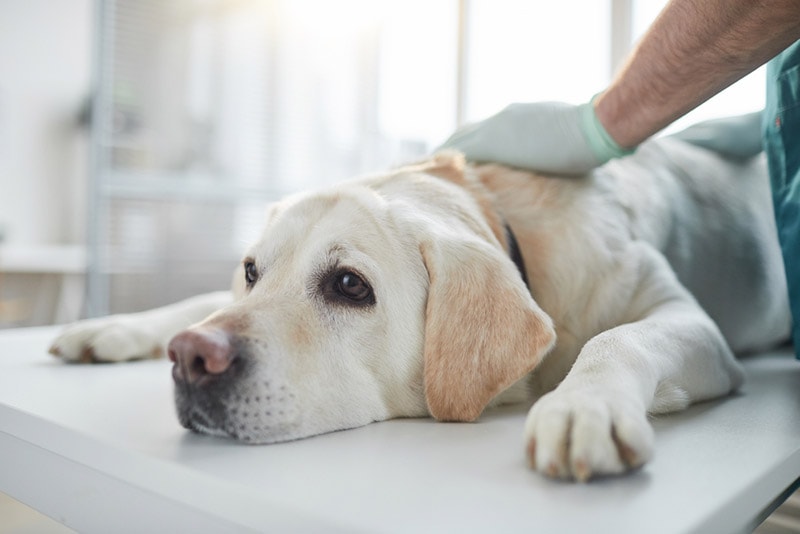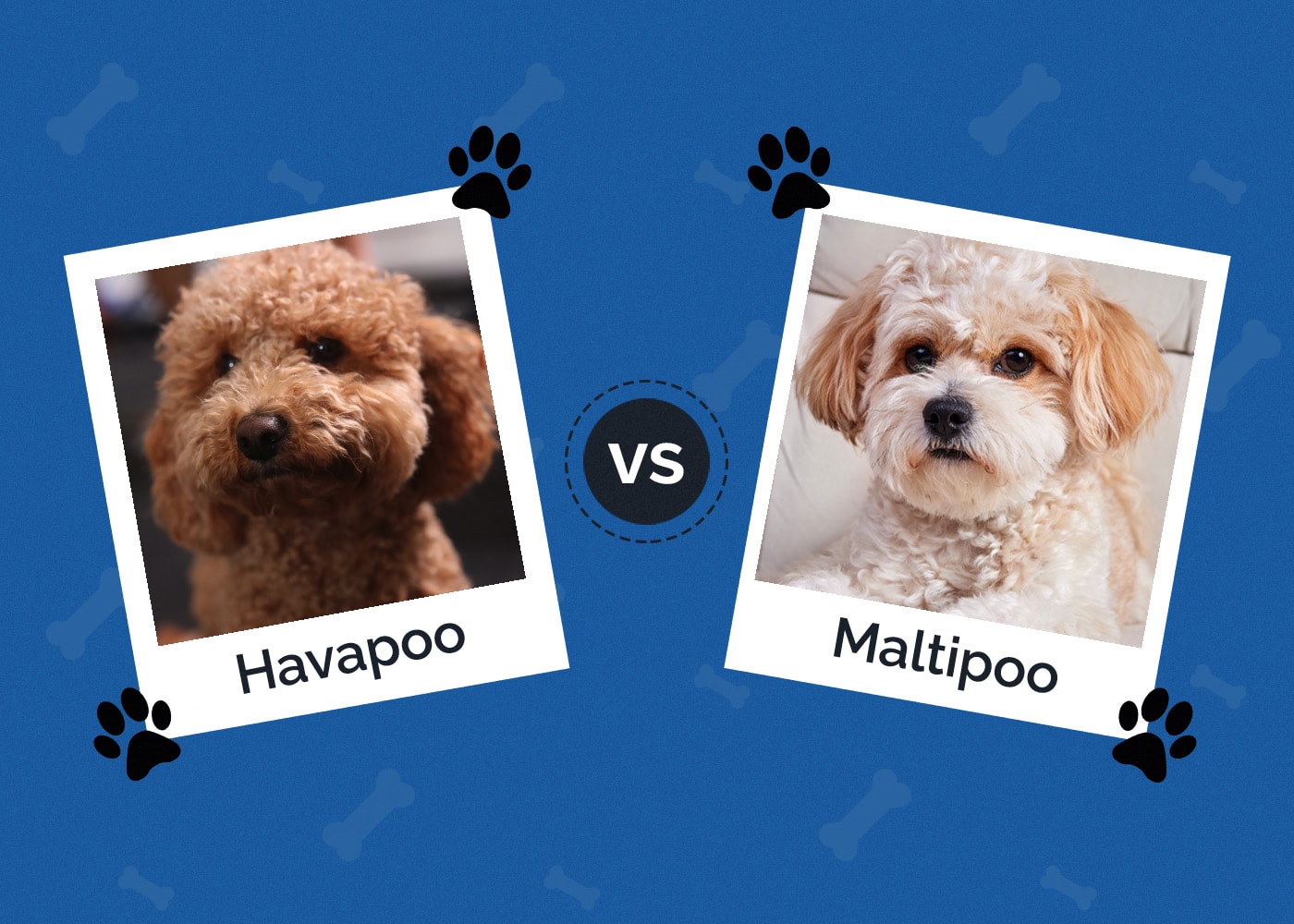Can You Use Human Shampoo on Dogs? Vet-Approved Facts & Safety Guide
By Brooke Bundy
Updated on
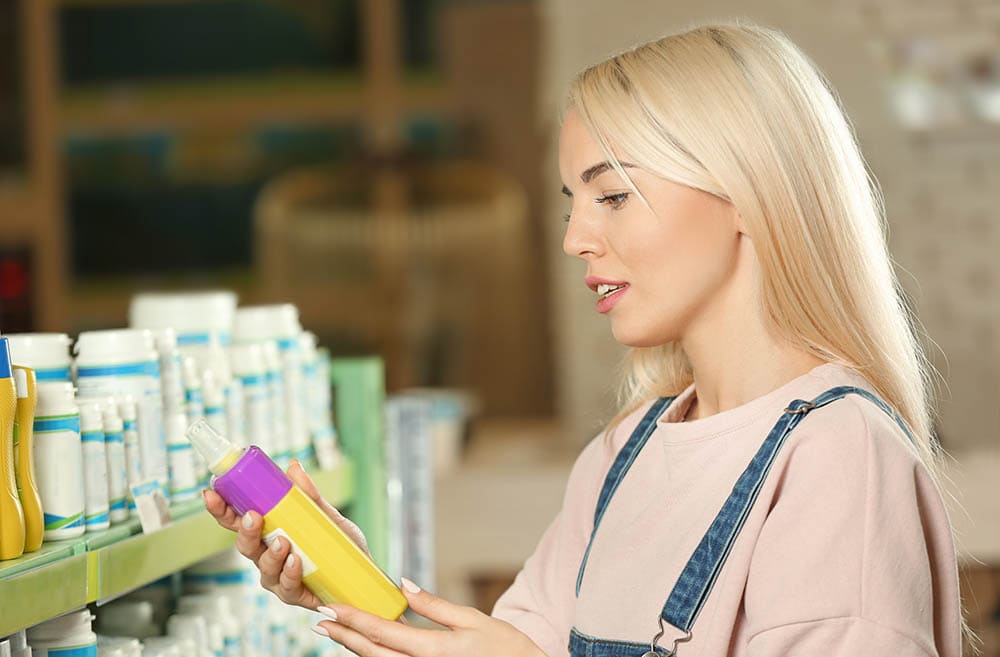
A quick trip down the aisle at the grocery store reveals that there is a bounty of shampoo options for all ages, genders, hair types, and personal preferences. Choosing shampoo for yourself can be a difficult task, but even more so for your pets. A bottle of dog shampoo may say that it’s not safe to use on your cat, and vice versa. Even shampoo you bought for your adult dog may have an age limit, and that’s especially true for flea/tick shampoo that’s not meant for use on young puppies.
It is easy to skeptically consider whether all of these differences are important or if we are falling for another marketing ploy whenever we buy shampoos that are specifically formulated for certain species. After all, would it really hurt a dog to use human shampoo if they desperately need a bath? While it probably won’t cause any major harm once, your dog really does need a shampoo that’s made for them. Their skin has unique needs that are different from those of ours and our other pets. Moreover, depending on their skin’s condition, they may need an even more specialized shampoo that’s tailored to their age and health.
Why It’s Best to Stick With Dog Shampoo
We hate to burst your bubble, but human shampoo is not good for your dog. Your dog’s skin is pretty basic, ranging from roughly 5.5 to 7.2 on the pH scale. Conversely, human skin is fairly acidic. Many factors influence skin pH, so the range is fairly liberal. However, most of us hover between 4 and 6, which is comparable to the acidity of a cup of coffee. Interestingly, an infant’s soft skin is actually closer to a dog’s skin pH than an adult’s, but those numbers sharply drop soon after they’re born.
Cat skin has a fairly neutral pH range. Most shampoos for cats hover around 6 on the scale, so it may be slightly too acidic for your dog’s skin. Despite their shared love for common places on the sofa, dogs and cats are very different species. Certain ingredients may be toxic to cats but aren’t harmful to dogs and vice versa, so it’s important to make sure what you’re using is safe for them in particular. Some shampoos are actually safe for both species, which can be a perk for a multi-pet household.
A pH imbalance can lead to skin irritation and infections, so you’ll want to do your best to keep your dog’s levels at a healthy number for them. Bathing them with shampoo that’s formulated for dogs and feeding them a balanced diet is a good start.
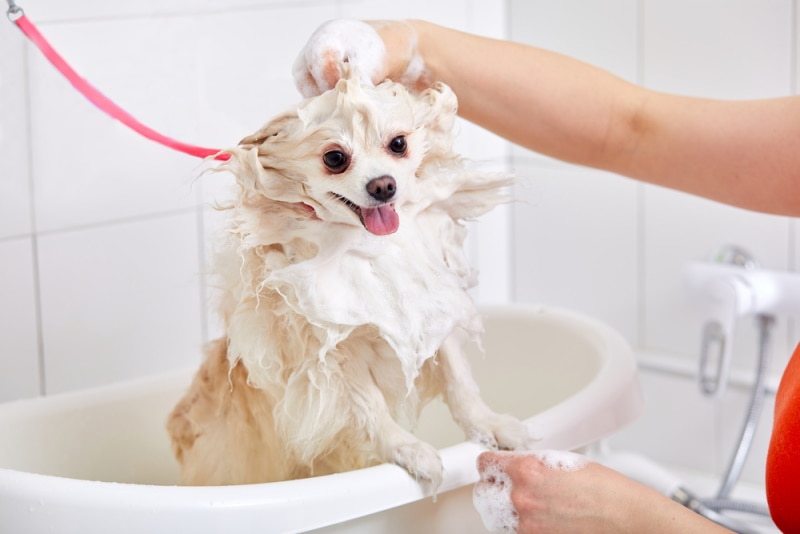
What to Look for In Dog Shampoo
Once you’ve found the dog aisle, you’ll still want to scan the ingredients list before snatching up a bottle of shampoo and throwing it in your cart. Like human shampoo, some formulas have inferior ingredients that can harm a dog’s skin in the long run. Here’s what to look for when deciding which shampoo is for you.
Our Recommendations Adding a shampoo and conditioner duo to your pet's grooming routine could be the difference in creating a soft, fluffy coat and hydrated, nourished skin. Heppers Oatmeal Pet Shampoo gently lifts dander, dirt, and excess fur without scrubbing away the natural oils important to your cat's derma health. The Pet Conditioner restores any moisture that may have been washed away and will prevent tangles and static. Both are all natural and formulated to soothe irritated skin.
Hepper Oatmeal Pet Shampoo
Hepper Pet Conditioner
All-natural
Fresh, light scent
Cleans fur and skin
Combats tangles & static
Sulfate-Free
Sulfates are cleansing agents that masquerade under several similar names, such as sodium laureth sulfate and sodium lauryl sulfate. They’re made to strip oils and dirt from your pup’s skin, which sounds like a good thing at first. The problem is, they do the job a little too well. In addition to removing the grime from last week’s dog park excursion, sulfates also remove the naturally occurring oils from their skin. Your dog’s coat suffers without these oils. Using sulfates almost always results in a listless, irritated coat that’s too dry after being stripped, or a greasy coat that’s overcompensating for the loss. It actually works the same way for you, too, so it’s best to find both of you a sulfate-free shampoo while you’re shopping.
Paraben-Free
Parabens are plastics that are known endocrine disruptors. In the human body, parabens mimic estrogen and have been linked to breast cancer, although a cause-and-effect hasn’t yet been proven. If these chemicals are causing harm, then it can be concluded that the effect might be much worse in small animals such as dogs and cats, so we say avoid them if possible.
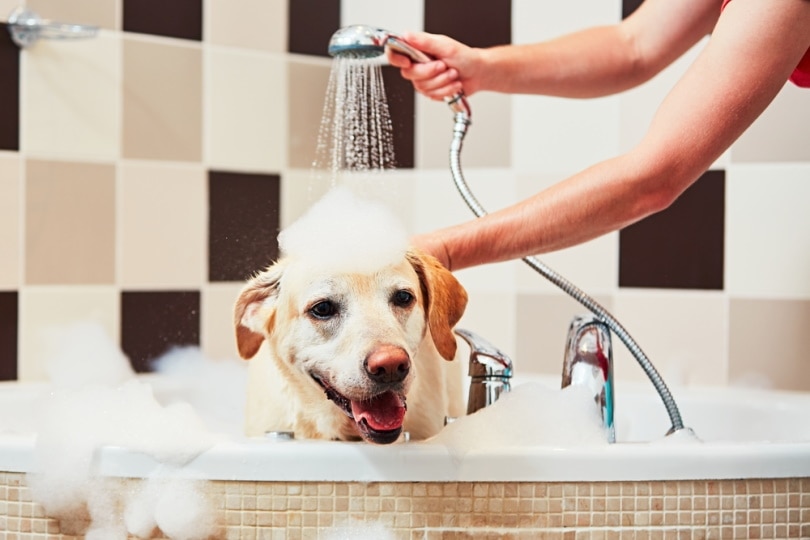
Fragrance-Free
The word “fragrance” on a shampoo bottle means simply that. Something, usually an unknown chemical, gives the shampoo a nice smell. These fragrance fumes can irritate your dog’s coat, especially if they have sensitive skin. Rest assured, though, you don’t have to sacrifice your sense of smell in order to take care of your dog. Some shampoos are naturally scented with dog-friendly ingredients such as oatmeal or lavender. Remember though, some essential oils have the potential to be toxic to dogs such as citrus, tea tree and pine. Always find a shampoo that’s either fragrance-free, or scented with a safe named, natural source.
Moisturizing Ingredients
Coconut oil, aloe vera, shea butter, and beeswax are all excellent moisturizing agents that are safe to use on your dog. Even without sulfates, baths remove at least some natural oils, so it’s important to replenish these oils with a moisturizer to promote a shiny coat.
Age Appropriate
Puppy shampoo is often gentler than a formula meant for adults. There’s even no tears puppy shampoo like there is for infants. Although you can still use puppy shampoo on an adult dog, don’t use shampoo that is specifically meant for adult dogs on puppies. This includes most flea and tick shampoos.
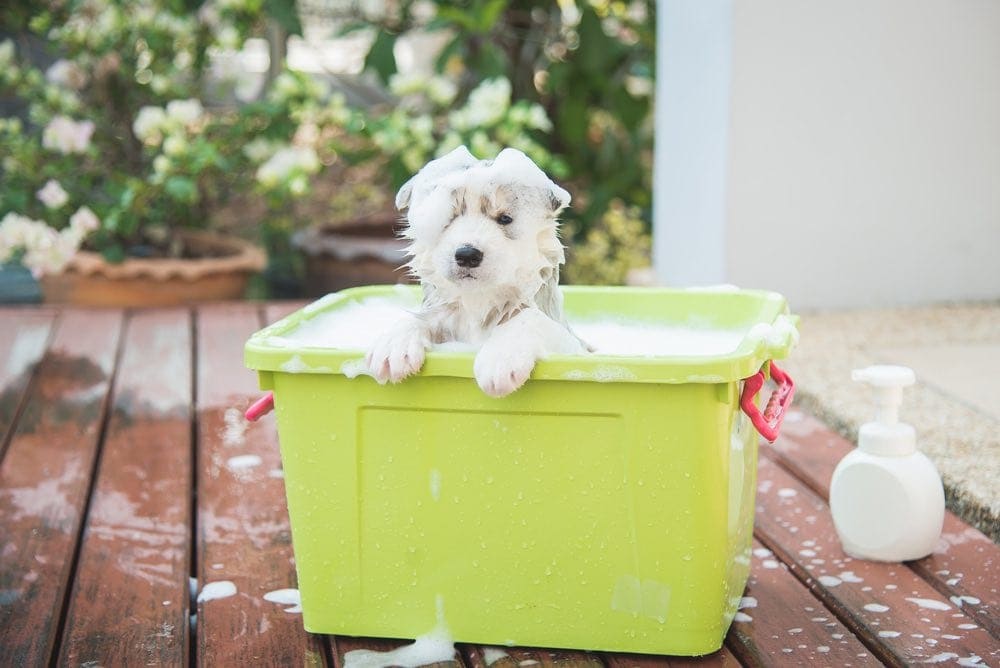
What to Do If I Don’t Have Dog Shampoo?
We’ve all been there. Maybe your dog happened to find the one mucky spot in the yard after it just rained and now you have a swamp puppy on your hands. You checked the bathroom cabinets but forgot that you used the last drop of dog shampoo and forgot to buy more. What do you do with the muddy monster outside? If you have an emergency and can’t wait for a trip to the store, it might be okay to use human shampoo. It isn’t likely to greatly harm your pup as long as it doesn’t contain any toxic ingredients and you only use it once. Find the shampoo that’s closest to ideal by comparing the ingredients to the list above. Try to use the gentlest formula you have on hand. Baby shampoo works well in a tough spot.
Conclusion
It’s always best to use shampoo that’s formulated for dogs on your pup. While human shampoo might not hurt them once, our skin pH is much more acidic than theirs. Using the wrong product could lead to irritation or infection, especially with prolonged exposure. Even with dog shampoo, it’s important to scan the ingredients list before you buy in order to find the best formula for your dog. We recommend avoiding potentially harmful ingredients such as sulfates, parabens, and fragrances. Opt for a moisturizing dog shampoo that contains safe ingredients, derives its scent from named natural sources, and is formulated for your pup’s life stage. Always speak to your vet if your dog has an underlying skin condition, they may prescribe a special medicated shampoo or make recommendations to help treat the problem.
See also:
- Can Dogs Be Gay? Animal Sexual Behavior Explained
- Can You Use Head & Shoulders on Dogs? Vet-Reviewed Safety & Risks
Featured Image Credit: Africa Studio, Shutterstock





